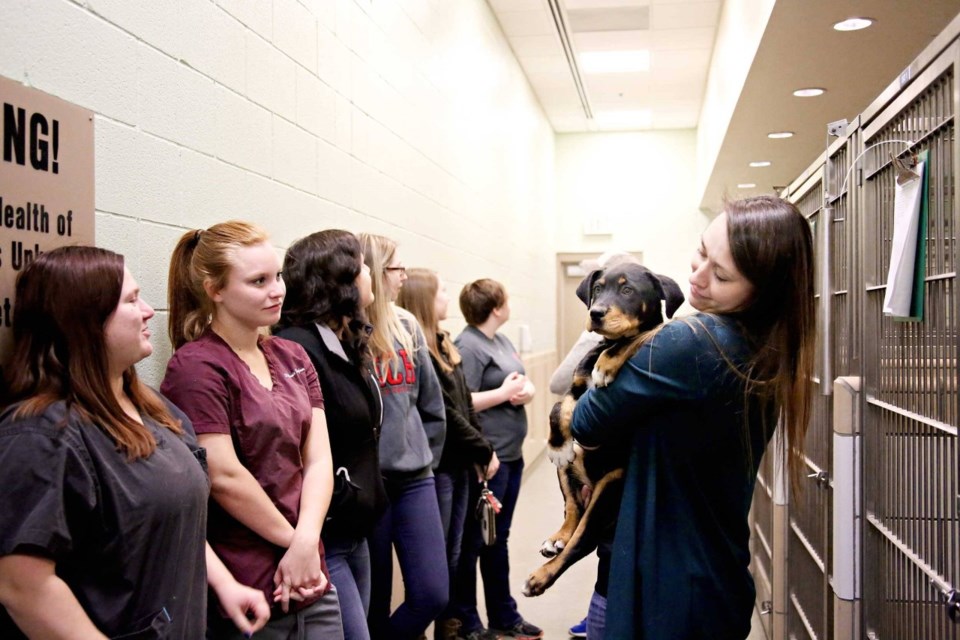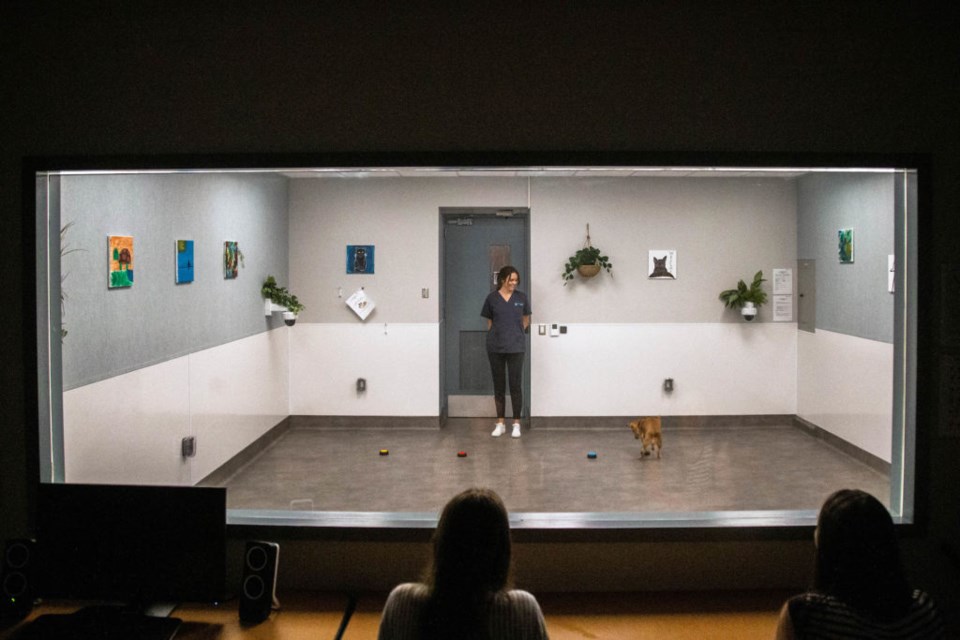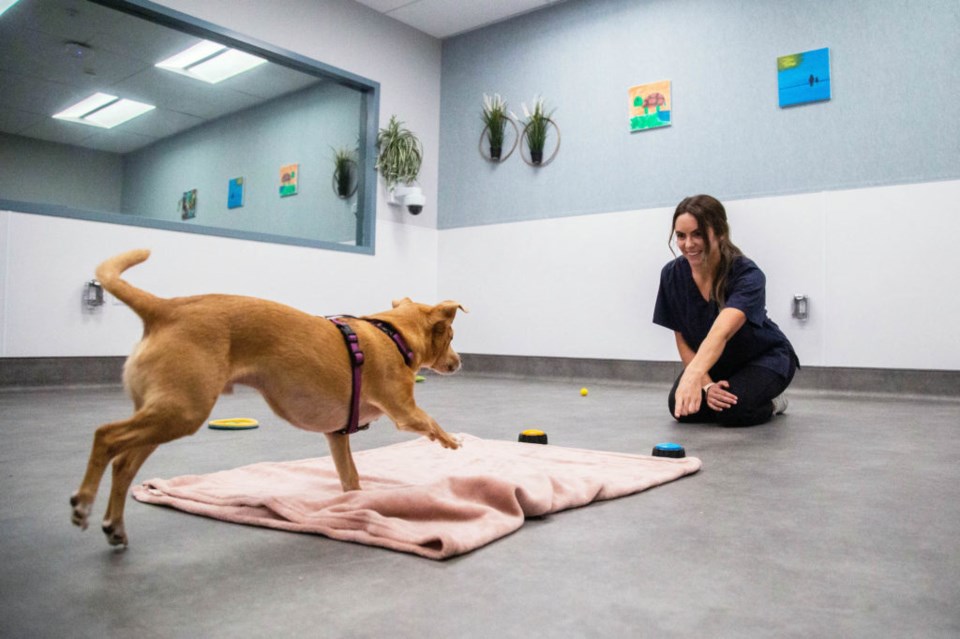Researchers at B.C.’s largest university are looking to tap dog owners in a study looking to reveal just what canines are capable of.
This is the first time the University of British Columbia (UBC) is calling on the public to bring their four-legged friends to the Human-Animal Interaction Lab, which opened Tuesday.
Canines are thought to have been living alongside humans for tens of thousands of years, and in that time have developed remarkably strong habits of looking to their caretakers for several social cues, said Alexandra Protopopova, the lab’s director and an assistant professor in UBC’s Animal Welfare Program in the faculty of land and food systems.
“People definitely know dogs pay attention to us. But I think they really underestimate how much,” she said. “We’re going to be asking questions to the dog themselves. We really want to know how they answer independent of the person.”

Protopopova and her colleagues will ask those “questions” through a series of cognitive games and puzzles, often involving food.
The researchers hope to find out how receptive dogs are to learning new rules to a game, and how mood affects their ability to navigate their environment.
As Protopopova put it: “From the dog’s perspective alone, how do they see the world?”
What should dog owners expect?
The newly opened UBC lab was recently renovated and now includes specialized flooring, 360-degree cameras and two-way mirrors to observe the canines.
The experiments will never last for more than an hour and the researcher says at no point will they be looking to alter the human-animal bond.
Instead, dog owners will remain alongside their pets the whole time as they move through the lab.
A few lucky dogs will be offered a bounty of toys, games and treats to see how mood affects their cognitive abilities. Others will be left in a baseline environment. Protopopova, who is also a certified applied animal behaviourist, has spent her career investigating domesticated animals, including how to adapt pets to a changing climate.

Protopopova said the dogs will never be subjected to uncomfortable situations.
“We’re never going to add any negative experiences for dogs,” she said. “We take it very very seriously.”
In the future, the canine cognition research is meant to help improve how animal shelters operate, as well as give insight to pet owners.
If all goes as planned, Protopopova and her colleagues hope to understand what creates a good mood in dogs, why good moods might be useful and how animal guardians can best ask dogs if they’re in a good mood.
Studies will also look at the use of trained therapy dogs and how the educational relationship between children and dogs can be more comfortable for everyone involved.
What kind of dogs are they looking for?
Protopopova said all breeds and sizes of dog are welcome to apply to take part in the study, so long as canines are vaccinated, and comfortable in new environments and novel situations.
Researchers will constantly monitor the dogs to look for signs of discomfort, and if a dog stops engaging with a game, they will take a break.
Because the UBC team will be conducting a number of non-invasive experiments, some participants will be asked to come for one session and others will be invited to come back for multiple visits to the lab.
As the research progresses, Protopopova said they will be asking owners of specific dog breeds to join the experiments to understand how that might affect canine cognition.
All dogs that take part in the study will receive a participation certificate and a photo wearing a “doggie graduation cap and sash, if they wish.”
“We want to make sure this is really fun,” she said.
Dog owners interested in taking part in research at the UBC Human-Animal Interaction Lab are asked to fill out a questionaire.



.jpg;w=120;h=80;mode=crop)